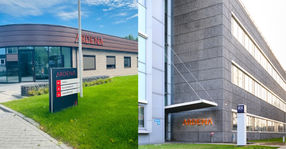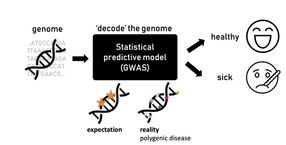Lack of temperature control during transport of pharmaceuticals may influence drug effectiveness
Current study analyses the increasing demand for temperature controlled transport and storage
High humidity, strong agitation, bright light and incorrect temperature storage during transport may have severe consequences on pharmaceutical products. Temperature and humidity variations during handling and transport may destroy the active components of these products. vaccines, biologicals and diagnostics are especially sensitive to external influences. A major problem with these temperature-sensitive products is that alterations in composition due to improper handling can reduce the effectiveness which can go undetected by healthcare staff or patients. The reduction in lifespan or the destruction of the active components is not visible to the patient's eyes; in rare cases liquid products may flocculate or suppositories may liquefy.
According to a study conducted by Novumed Life Science Consulting already 19% of the world's best selling pharmaceuticals are temperature-sensitive. This means that approximately one fifth of the total pharmaceutical market (about USD 650 bn) is represented by temperature-sensitive products. Estimates for the share of temperature-sensitive products is expected to rise in the following years, as the biologicals market grows at a yearly average rate of 13%; whereas chemical based pharmaceuticals grow at a rate of 8%.
Novumed's consultants analysed a total of 600 products of the world's largest health care companies (pharmaceuticals, diagnostics, vaccines and biologicals) which already account for 70% of the global pharmaceutical market. The analysis revealed that approximately 100% of all vaccines and 68% of all products sold by biotech companies need to be stored and transported between 2 to 8 °C. Furthermore, almost half of all diagnostics (43%) and about 11% of all products from large pharmaceutical companies should be handled with the same precaution.
The strategy consultants also found a strong correlation between product price and temperature-sensitivity during their analysis. Especially high-value products need to be stored between 2 to 8 °C. Biologicals, vaccines and hormones can reach a package price of up to USD 6.000. An airfreight container (LD3=2,93 m3) may then reach a value of up to USD 20 million. Compared to the product's value the airfreight costs are then of minor importance. The topic of temperature controlled transports for pharmaceutical products appears to be of increasing relevance for the industry. There is currently no common jurisdiction in place which regulates the global transport of sensitive health care products. Laws vary from country to country and in many cases companies legally have to deal with pure recommendations. Even leading authorities like the American FDA (Food and Drug Administration), the World Health Organization (WHO) or the EMEA (European Medicines Agency) only issue recommendations rather then strict rules and regulations.
There are multiple reasons why a drug is not effective or a vaccine may not protect. The success might be influenced by the patient's compliance, an inadequate diagnosis or further environmental factors. However, the true reason, why a treatment was not effective can hardly by fully analysed by the medical doctor alone. Therefore, in rare cases the doctor would consider a poor transport chain of the prescribed drug as the reason why a patient's care may not show any improvement.
Other news from the department business & finance
Most read news
More news from our other portals
See the theme worlds for related content
Topic world Diagnostics
Diagnostics is at the heart of modern medicine and forms a crucial interface between research and patient care in the biotech and pharmaceutical industries. It not only enables early detection and monitoring of disease, but also plays a central role in individualized medicine by enabling targeted therapies based on an individual's genetic and molecular signature.

Topic world Diagnostics
Diagnostics is at the heart of modern medicine and forms a crucial interface between research and patient care in the biotech and pharmaceutical industries. It not only enables early detection and monitoring of disease, but also plays a central role in individualized medicine by enabling targeted therapies based on an individual's genetic and molecular signature.






























































